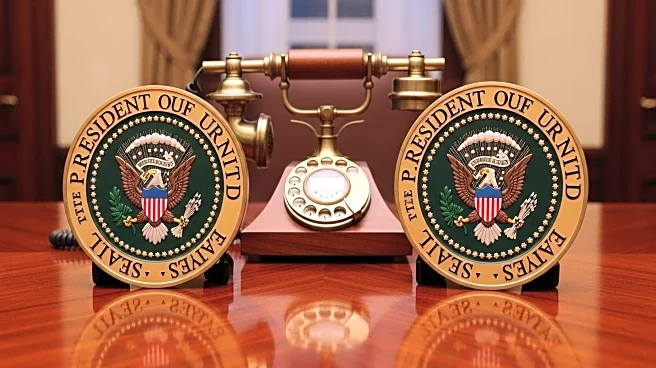What is the story about?
What's Happening?
President Trump and Brazilian President Luiz Inácio Lula da Silva engaged in a video call described as 'friendly' by both parties, focusing on reducing U.S. tariffs on Brazilian imports. The tariffs, increased to 50% earlier this year, were a response to the trial of former Brazilian President Jair Bolsonaro. Lula requested a reduction to the original 10% and the removal of sanctions on Brazilian officials. The call marks the first formal conversation between the leaders since their brief encounter at the UN General Assembly. Both leaders expressed optimism about future discussions and exchanged phone numbers for direct communication.
Why It's Important?
The call represents a potential shift in U.S.-Brazil relations, which have been strained due to the tariffs and Bolsonaro's trial. Reducing tariffs could enhance trade relations and benefit both economies, particularly Brazilian exporters. For the U.S., improving relations with Brazil could facilitate cooperation on global issues, such as climate change and regional security. The dialogue underscores the significance of diplomatic engagement in resolving trade disputes and fostering bilateral cooperation.
What's Next?
Further discussions are expected, with potential meetings in Brazil and the U.S. to address trade and economic issues. Lula's invitation to Trump for the COP30 climate summit in Brazil could lead to direct engagement on environmental policy. The appointment of U.S. Secretary of State Marco Rubio to continue negotiations indicates ongoing diplomatic efforts to resolve the tariff issue. The Brazilian government is reviewing the appointment, preferring direct communication with President Trump.
Beyond the Headlines
The call may have broader implications for Brazil's international role, particularly in peacekeeping efforts in Haiti, where Brazil has previously led UN missions. Cooperation on such initiatives could enhance Brazil's global standing and contribute to international stability. The dialogue also reflects broader geopolitical dynamics, with Brazil navigating relations with major powers while addressing domestic political challenges.















